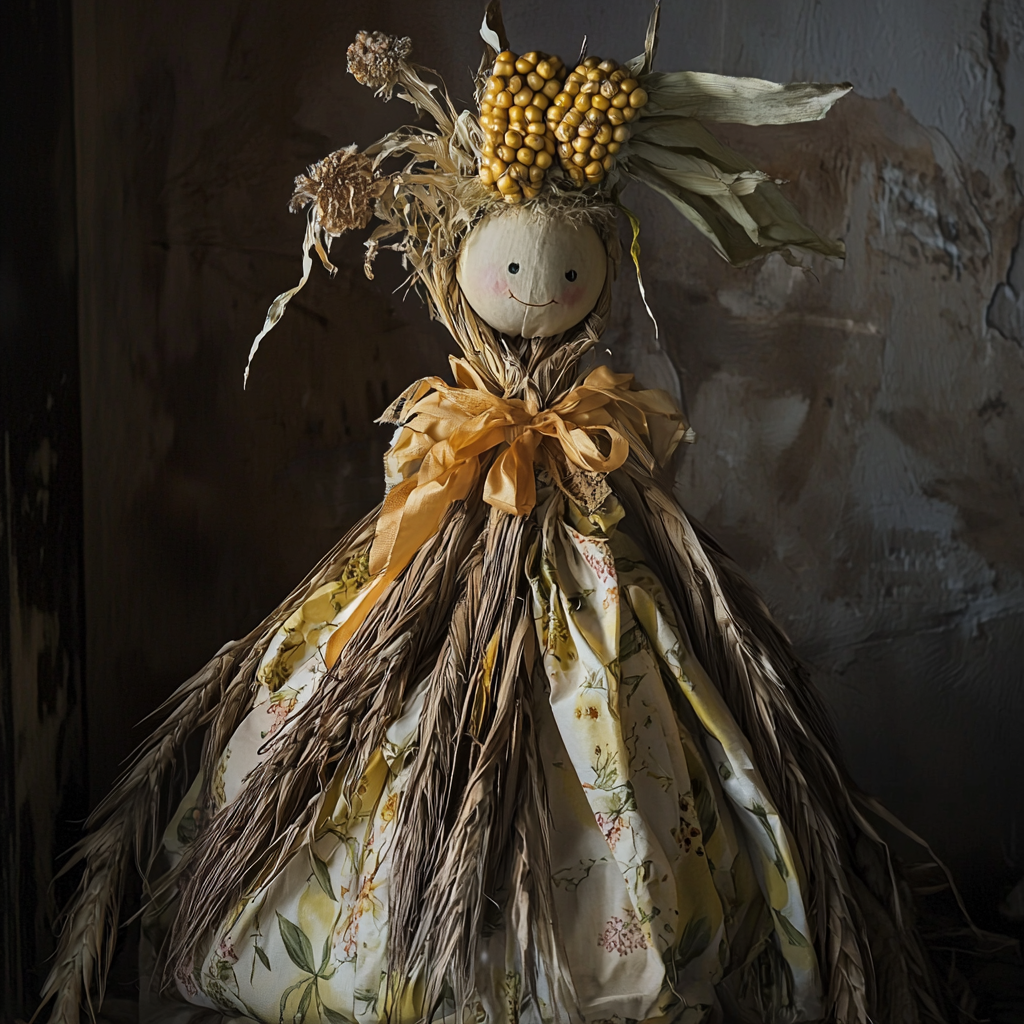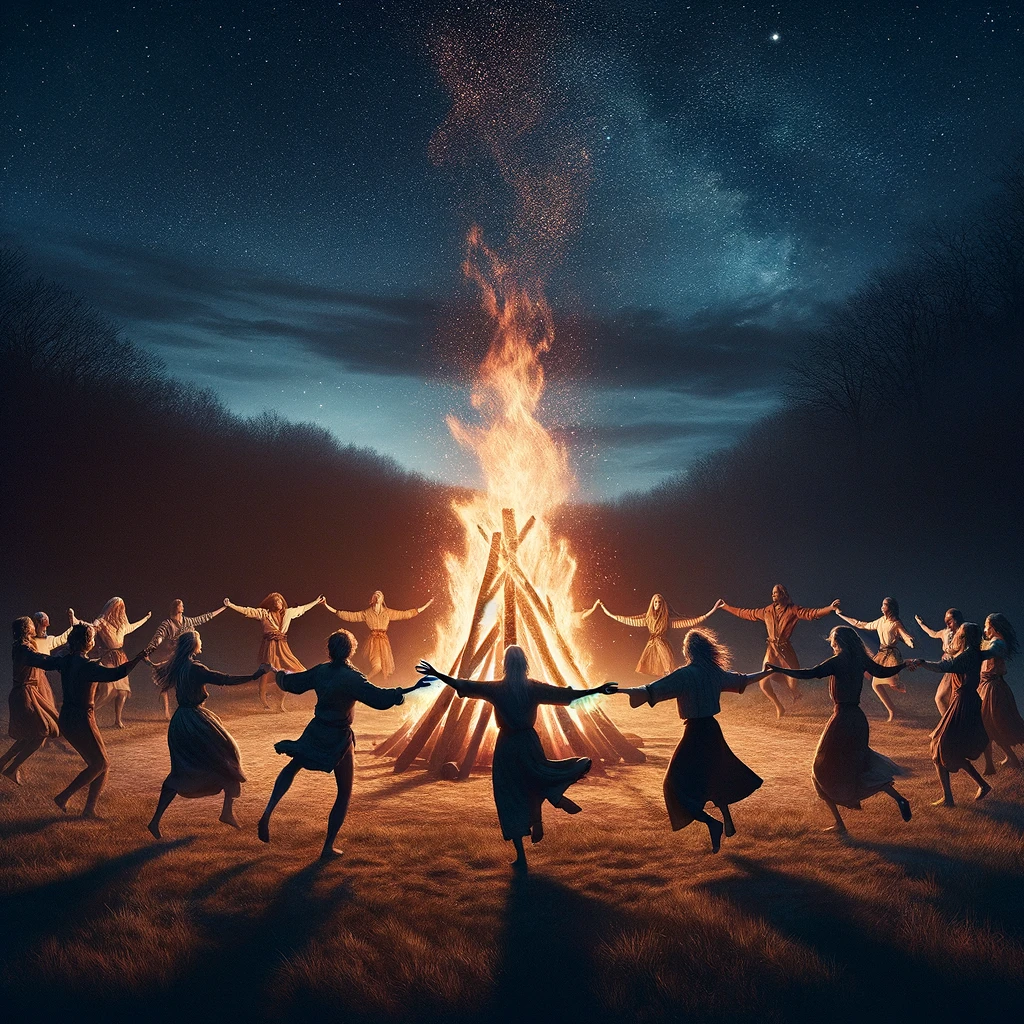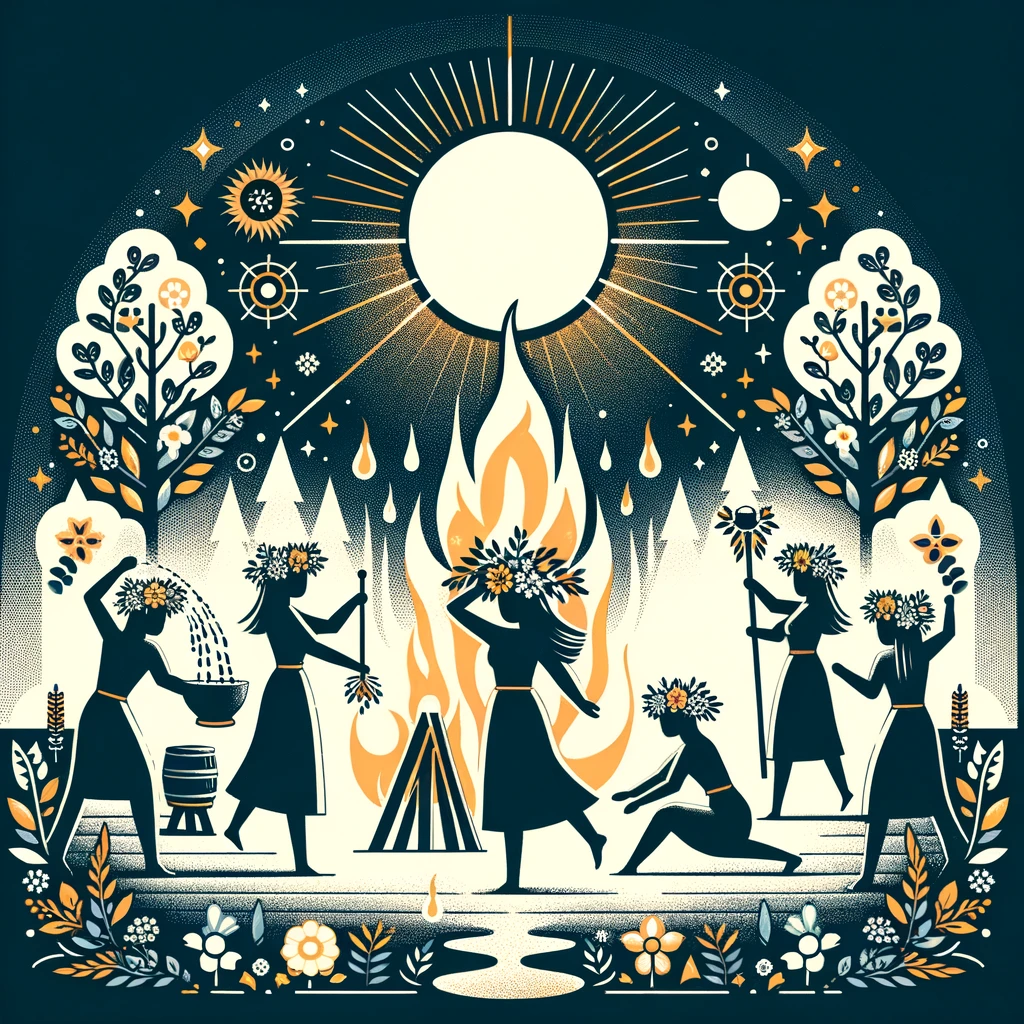Autumn is around the corner, and here among the Fyrgenwaru, it is time to celebrate our little harvests, as well as the efforts of those people who work full-time to bring us food for our table.
Where: Osric’s place in the foothills
When: 4pm Saturday, September 28, 2024
How: If you are interested in attending, let us know here or reach out on Facebook.
Why?
The Autumnal Festival, or in Old English, Hærfestlíc Freólsung, is a celebration of the final stages of bringing in or “ingathering” cereal and vegetable crops. By the time the next major holy tide of Winter-fylleþ had arrived, crops were considered subject to being “blasted” by a púca, which is to say, afflicted by frost and rendered inedible.
The Saxons and sister tribes observed variations on a similar tradition, of leaving the Last Sheaf of grain in the fields unharvested, a tribute to Woden for his horse. In some regions, this sheaf was made into a Corn Doll, also known as a Corn Maiden or in Latin, vetula. These were thought to give the grain spirit somewhere to live over the Winter months, and were often ploughed into the first furrow of the new season at the plough festivities (Frazer, 1890). We also see Grimm, quoted here in Bullfinch’s Mythology recounting:
Wodan has long since died out of the minds of the people, yet his character and actions are clearly shown in tradition, and his name also appears in proverbial sayings, charms, and invocations. Seventy years ago the Mecklenburg farmers, after the harvest was brought home, used to give their labourers Wodel-beer, a feast at which there was plenty to eat and drink. The people poured out some of the beer upon the harvest field, drank some themselves, and then danced round the last remaining sheaf of corn, swinging their hats and singing:
“Wôld! Wôld! Wôld!
hävenhüne weit wat schüt,
jümm hei dal van häven süt.
Vulle kruken un sangen hät hei,
upen holte wässt manigerlei:
hei is nig barn un wert nig old.
Wôld! Wôld! Wôld!”*“Wôld! Wôld! Wôld!
The Heaven-Giant knows what happens here;
From Heaven downwards he does peer.
He has full pitchers and cans.
In the wood grows many a thing.
He ne’er was child, and ne’er grows old,
Wôld! Wôld! Wôld!”— Grimm’s “Teutonic Mythology,” translated by J. S. Stallybrass, vol. i, p. 156. (London: Sonnenschein nd Allen.)



